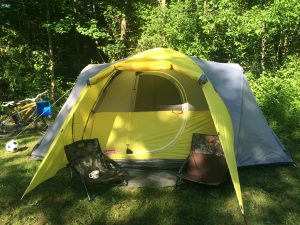Green tea is a very common beverage in our society, and one that has been purported as a very beneficial addition to one’s diet. However, many individuals do not know the full extent to which green tea can help, and how many cups are necessary to achieve these benefits. Please note that this article is based off of a research article that can be found at: https://www.researchgate.net/profile/Craig_Schneider2/publication/24309791_Green_tea_potential_health_benefits/links/0a85e52f2986fdb4bf000000.pdf
5 Health Benefits of Green Tea
- Reduces risk of Cancer
Tea overall can be beneficial for cancer prevention, but in particular, green tea can be beneficial for treating and preventing breast and colorectal cancer risk. In particular, for breast cancer, three or more cups of tea per day was enough to see the benefits. It was noted that the green tea consumption resulted in a 20% reduction in risk of breast cancer. However, with colorectal cancer, five to ten cups of tea were sufficient enough to reduce the risk of this cancer. In particular, green tea consumption resulted in an 18% reduction in risk of colorectal cancer. Other cancers that green tea consumption may reduce the risk of include stomach, esophageal, and prostate.
- Aids with treatment of genital warts
In regards to genital warts, green tea was shown to be effective for the treatment through a topical application of the tea.
- Aids with weight loss
When trying to lose weight, green tea may help to decrease body weight, body mass index, body fat ratio, body fat mass, and waist and hip circumference. In addition, if an individual discontinues their diet and lifestyle changes in regards to weight loss, those who drink green tea will gain back less weight than those not consuming green tea. These results were found with just one cup of green tea per day!
- Reduces cholesterol levels
Green tea can have an impressive effect on LDL cholesterol (i.e. bad cholesterol). When compared to placebo, green tea was able to reduce LDL cholesterol by 16%. This effect was noticed with two cups of green tea per day.
- Reduces risk of cardiovascular disease
Aside from the effect on cholesterol, green tea has been shown in research to decrease the risk of not only cardiovascular disease but also stroke. Individuals who consumed five or more cups of tea per day experienced a reduction in risk of stroke.
Can anyone just drink green tea?
As with anything, it is important to know the risks of anything you are consuming. With that being said, green tea may not be for everyone. For example, green tea may decrease absorption of iron or folic acid when consumed with a meal. Therefore, it may not be well suited for anemic individuals or those who are pregnant. In addition, green tea may have a blood thinning effect, and so should not be consumed with blood thinning medication or two weeks prior to surgery. In some individuals, green tea can also cause an upset stomach and nervous system stimulation due to the caffeine content in it.
Have you benefited from reading this blog? Know someone that would benefit as well? Share, Like, Comment, or Tweet this article, and let me know what you think.
Some of the information provided above may not be appropriate for everyone, please consult with your doctor before trying any of the above. If you are interested in Naturopathic Medicine and wanting a different approach to your health care needs, contact Dr. Elisha Cook ND by calling 519-537-7058 and book your appointment today!


